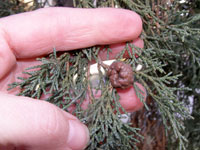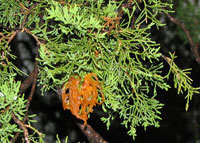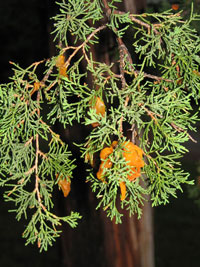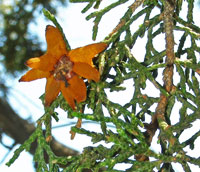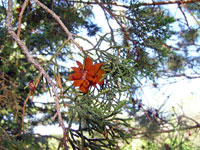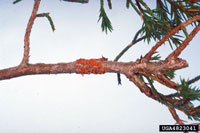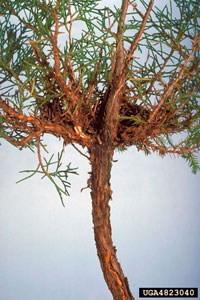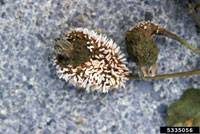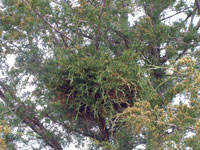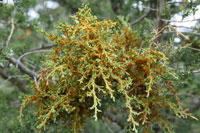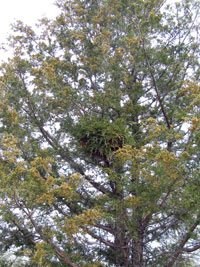Extension > Garden > Diagnose a problem > What's wrong with my plant? > Evergreen Trees and Shrubs > Juniper > Unusual growths on branches
Juniper > Trunk/Branches > Unusual growths on branches
1 of 4
Cedar-apple rust
Gymnosporangium juniperi-virginiana
- Brown 1/4 to 1 inch round woody galls on twigs
- Bright orange, long tentacle like fungal structures emerge from galls in wet spring weather
- Needles and twigs beyond galls may die on branches with many galls or on Rocky Mountain juniper
- More information on Cedar-Apple Rust
2 of 4
Hawthorn rust
Gymnosporangium globosum
- Brown round woody galls up to ½ inch long on twigs
- Thick wide orange spikes form on galls in wet spring weather, making the galls look star like
- Rarely causes twig dieback in juniper
- More information on Hawthorn rust
3 of 4
Quince rust
Gymnosporangium clavipes
- Swollen oblong areas form on infected twigs and branches
- Bark become flaky in older branches
- Orange, gelatinous jelly projects from flaky, swollen bark in wet spring weather
- Jelly dries to show an orange crust on infected branches
- Foliage yellows and thins in severe infections; particularly on Eastern red cedar
- More information on Quince Rust
4 of 4
Juniper broom rust
Gymnosporangium nidus-avis
- Rounded clumps of foliage can be seen throughout the tree canopy
- These clumps are witches brooms, or clusters of many small branches
- Swollen elongate areas with rough cracked bark can be seen on infected branches without witches brooms
- Orange jelly forms on needles and from cracks in infected bark during wet spring weather
- Common on Rocky Mountain juniper, eastern red cedar and prostrate juniper
- More information on Juniper broom rust



